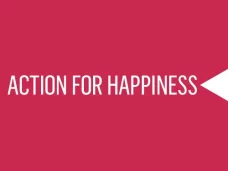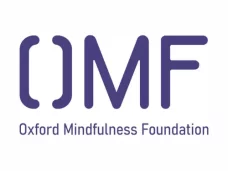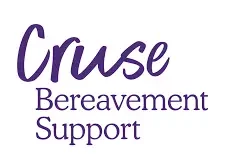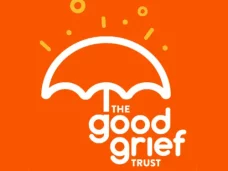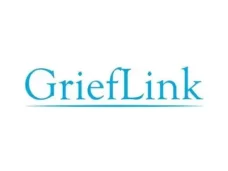‘In my early professional years, I was asking the question: How can I treat, or cure, or change this person? Now I would phrase the question in this way: How can I provide a relationship which this person may use for his own personal growth?’ - Carl Rogers
There are many different approaches to counselling, and more appear every year. Many of these approaches apply very similar theories but use different terminology.
All forms of counselling/psychotherapy start with you talking about your issues and concerns. Some counsellors and psychotherapists, walk alongside you, on your therapeutic journey, while others lead. Whilst all therapists will feed back to you their understanding of what you are telling them (and therefore of what you are experiencing) each approach offers varying degrees of interpretation and analysis. Subsequently, some approaches may help you find your own solutions while other’s may direct you towards a solution as chosen and defined for you by the counsellor.

Flexible Humanistic Counselling
I am a Humanistic, Person-Centred (Rogerian) counsellor. However, after discussion with you, we may decide that it would be helpful to integrate aspects of other counselling approaches. Over the years clients have found it especially helpful to look at their thoughts and therefore I often integrate Beck’s Cognitive Behavioural Therapy (CBT) approach into my practice.
‘It is the [counselling] relationship that heals.’ - Irvin Yalom, Love’s Executioner, p. 112.
‘We cannot change, we cannot move away from what we are, until we thoroughly accept what we are. Then change seems to come about almost unnoticed.’ - Carl Rogers, On Becoming a Person, Constable, 1961: 17
Humanistic Counselling Approach
Under the Humanistic banner, there are four counselling approaches: Person-Centred, Existential and Gestalt therapy and Transactional Analysis.
Humanistic approaches believe that human nature is inherently good and that, given the correct facilitative environment, individuals will aspire to be the best version of themselves that they can be. Humanistic counselling is about empowering you to ‘be true to yourself’. Even though Humanistic counselling is non-directive, it is not the soft option. It utilises empathic non-judgemental congruence in dialogue, and it can be challenging to hear your thoughts and lived experience reflected back to you. However, it can provide you with the self-awareness and self-knowledge to grow, develop and change.
How often in life are we able to be completely congruent in our relating to and communication with others?
For further exploration of the Person-Centred Approach, you may find valuable resources on the following websites:
Rogerian Person-Centred Approach

This is a talking therapy and in the counselling session, you can talk about any issues or concerns that you have with your counsellor. The counsellor will be empathic and non-judgemental. They will be down to earth and will work with you to help you gain greater self-awareness. Talking through your issues may be all you need, or you may work with your counsellor to find ways to change and move forward.
In the 1940’s Carl R. Rogers began to change the politics of counselling and psychotherapy. Rogers (1978) rejected the medical model of the day and moved the focus of counselling practice from patients who had a 'problem to be solved' to clients whom he acknowledged as individuals with the emphasis on holism and valuing of the clients' phenomenological subjective experiences. The foundation on which Rogers (1951) built the Person-Centred Approach is the Actualising Tendency. This is the notion that there is a drive to fulfil potentialities within every organism to become all that it can be and is "considered to be the sole motivation for human development and behaviour" (Merry, 2002, p 21). In developing the Person-Centred Approach, Rogers (1980, p115) found, through research (Rogers, 1957 and 1959) and personal experience, that when clients who are in psychological distress are offered a "definable climate of facilitative psychological attitudes", then they access their resources for self-understanding, self-awareness and for altering self-concept, attitudes, and self-directed behaviour. The psychological attitudes that the effective Person-Centred counsellor must have are Empathy, Congruence and Unconditional-Positive-Regard. The Person Centred Approach’s fundamental aim is to facilitate autonomy and empowerment and to allow this, the client must feel that they are the agent for change in their own lives (Rogers, 1978). The good Rogerian Person-Centred counsellor is non-directive and defers unquestioningly to the client’s inherent self-agency. I have experienced in my practice how effective the Person-Centred Approach is in ameliorating distress and empowering clients to grow, develop and change. Developments over the last seventy years have added more structure and technique to the approach, such as Focusing-Oriented Therapy, Experiential Person-Centred Therapy (Sanders, 2012), and Counselling for Depression (CfD as used in the NHS).
Cognitive Behavioural Therapy

Sometimes the way we think can be unhelpful to our happiness and mental state. Cognitive Behavioural Therapy involves examining unhelpful thoughts and exploring how they impact our emotions and actions. As part of this process, we can look at how we can change these negative thoughts and behaviours. The focus is on improving psychological well-being.
Cognitive Behavioural Therapy began to appear in the late 1950s, with Aaron T. Beck and Albert Ellis being the most influential theorists. Both Beck and Ellis held that psychological disturbances are caused by negative and unhelpful thoughts and thought processes. Helping the client change these thoughts and thought processes would remedy the psychological disturbance (Rachman, 2009).
There are now many different Cognitive Behavioural counselling approaches; however, they all share similar therapeutic techniques and assumptions about the impact of human cognitions. Beck et al (1979, p147) define a cognition as 'either a thought or a visual image that you may or may not be aware of unless you focus your attention on it'.
Fundamental to the Cognitive Behavioural Therapy approach is the notion that thoughts are not necessarily truthful representations of events or experiences and should therefore be viewed simply as mental events (Beck et al 1979). CBT counsellors work with clients to look at their cognitions.
CBT utilises varied and specific tools, including setting goals, to help clients change their unhelpful cognitions. Examples of these are distraction, grounding strategies (mindfulness and breath work), and appraising negative automatic thoughts and images. CBT involves setting homework tasks, such as recording thoughts and testing behaviours.
CBT centred around locating and defining unhelpful thoughts in whatever form they may take to 'carry out the necessary cognitive restructuring that is the raison d'être of all forms of CBT' (Trower et al, 2016, p8).
Grief Counselling
‘It is the client who knows what hurts, what directions to go, what problems are crucial, what experiences have been deeply buried. It began to occur to me that unless I had a need to demonstrate my own cleverness and learning, I would do better to rely upon the client for the direction of movement in the process.’ Carl Rogers, On Becoming a Person, Constable, 1961
Grief can be experienced after any major change in our lives. The death of someone significant in our lives can cause us to experience grief and a multitude of emotions. Sometimes these emotions can be challenging, even making us question our very existence. We can also experience Grief when a relationship ends, for whatever reason, be it separation, divorce, a feud or a falling out. We can also grieve when life events stop us from being with and seeing significant others - maybe they have moved to live far away, left home, or been imprisoned, whatever the cause, this loss of physical proximity and contact can cause us to grieve. We grieve for our family and friends when they die, and we can grieve for our dog, cat, horse, pets, just as much, sometimes even more. Change of any sort can cause us to grieve for what we have lost, and even for what could have been but now never will be.Sometimes our grief is for ourselves because we are sad and fearful of what we have lost and are losing, maybe our youth, maybe our health, our mobility, our lucidity. We can also experience grief (sometimes referred to as anticipatory grief) when a significant other is given a terminal diagnosis or diagnosed with a life-limiting illness like Dementia.

Happiness is beneficial for the body, but it is grief that develops the powers of the mind. - Marcel Proust

Exploring Feelings
Grief, Loss, Change counselling is about gently starting to look at all these feelings. Just as we all experience Grief, Loss and Change in a way that is very personal to us the therapeutic journey will be very personal to us.

Acceptance and Pain
Sometimes the first thing that we have to do is to try to find a way to accept the reality of our loss or of what it is that we are potentially losing. Then often we need to allow ourselves to experience the emotional pain associated with our grief and feelings. Working through the pain of grief, and the associated emotions, with a counsellor can help you to feel heard and supported in your grief journey. This is important because sometimes grief can feel very lonely and isolating. A counsellor can help you process and understand the many emotions that can be triggered by bereavement and grief such as guilt, shame, fear, despair, yearning, pining, sadness.

Understanding and Growth
You may then want to look at some grief-specific issues and concerns such as, who am I now and how have I been changed by this experience? Do I want something different from life now and if so what is it that I want? How do I make this change happen? However, everyone’s grief, loss, and change journey is different and individual to them.
Client Reference
Session Information
I provide counselling via telephone, Zoom, online, walk and talk, and in therapy rooms in Kemptown, Brighton. Once we have a therapeutic alliance, I am also happy to come to your home to provide counselling.
Counselling Fees
Home visit, walking/talking or Zoom
£50 for a 50-minute counselling session
Face-to-face
£61 for a 50-minute counselling session
I offer a few concessionary spaces at my practice for low-income and student counsellors (I will need proof of this). These are £35 or £46 depending on the type of session.
Method of Payment
Counselling sessions take place after payment has been received, online to my bank account:
- Account Name: Deckchaircounselling
- Account type: Monzo Business Account
- Sort Code: 04-00-03
- Account Number: 95319572
Get In Touch
I provide a private counselling service for clients aged 18+ and offer an initial free online, Zoom or telephone session. This is an opportunity for you to meet me and find out if you want to work with me.
Feel free to contact me through the contact form below if you have any questions or to arrange an initial session. You can also call me on +44 7773 520901 if you would prefer to leave a message or speak to me first.
All enquires are usually answered within 24 hours, and all contact is strictly confidential.
IF YOU ARE IN CRISIS, PLEASE
Phone the Samaritans on 116 123
Phone your local GP
Phone NHS 111 option 2 (the mental health option)
If you live in Sussex you can contact Mental Health Support by texting the word SUSSEX to 85258 or you can use the Staying Well Service. This is a support service for people in Sussex who are experiencing a self-defined mental health crisis.
Useful Links
Am I the Right Counsellor for you?
I work with clients who would like counselling support so that they can address their issues and concerns. You may be grieving or feeling anxious, stressed, or depressed.
Please note that I am not a suitable counsellor for you if you are:
- Actively thinking of harming yourself or have tried to kill yourself in the past month.
- Are under the care of hospital psychiatry services or have dementia.
- Have been diagnosed with a severe and enduring, unstable mental illness such as psychosis.
- Have been diagnosed with a severe or complex personality disorder.
- Want advice about managing your mental health medication.
- Need help for your drug and alcohol misuse.
- Have been diagnosed with autistic spectrum disorder or learning disability which has a significant impact on your day-to-day life.
There are other more appropriate services out there that will be able to help and support you much better than I ever could if you fall into one of the 7 categories above.
Always have a trial session with a counsellor and trust your instincts. Research has evidenced that it is the counselling relationship that heals (Norcross and Lambert, 2019) therefore it is important that you feel able to be yourself and trust the relationship.
As the law stands anyone can call themselves a counsellor or psychotherapist, because these titles are not legally recognised. This means that it is absolutely critical that you seek hard evidence of your counsellor or psychotherapist’s qualifications and experience. Make sure that they are registered with a regulatory body like the British Association of Counsellors and Psychotherapists (BACP) or the British Psychological Society (BPS). Both organisations have a Therapist Directory which you can search through.
A bad counsellor can be damaging and can even leave you re-traumatised (Masson, 1992). Therefore, it is important that you trust your instincts and don’t go back for further sessions. Always talk your concerns through with a trusted and reliable third party.
Sometimes, when you start counselling, you can feel worse before you feel better. Within the context of addressing challenging issues and concerns, this is understandable. However, a skilled counsellor will manage this therapeutic process. They will make sure that you are safe and that you are grounded before you leave the session.
References

BACP: https://www.bacp.co.uk/search/Therapists
Beck, A. T. Rush, A.J., Shaw, B.F., & Emery, G. (1979) Cognitive therapy of depression. New York. Guilford Press.
Masson, J. (1992) Against Therapy. Glasgow. HarperCollinsPublishers.
Merry, T. (2002) Learning and Being in Person-Centred Counselling. 2nd Ed. Ross-on-Wye. PCCS Books.
Norcross and Lambert, 2019 Psychotherapy Relationships that Work: Evidence-Based Therapist Contributions, 3rd ed. New York: Oxford University Press.
Rachman, S. (2009) ‘Psychological treatment of anxiety: the evolution of behaviour therapy
Rogers, C. R. (1951) Client-Centred Therapy. UK. Constable and Company Ltd
Rogers, C. R. (1957) ‘The necessary and sufficient conditions of therapeutic personality change.’ Journal of Consulting Psychology, vol 21(2), pp 95 - 103.
https://doi.org/10.1037/h0045357
Rogers, C. R. (1959) ‘A Theory of therapy, personality, and interpersonal relationships, as developed in the client-centered framework’ Psychology: A Study of a Science. Vol 3. New York. McGraw-Hill. pp 184-256
Rogers, C. R. (1978) Carl Rogers on Personal Power, Inner Strength, and Its Revolutionary Impact. GB. Constable and Company Ltd.
Rogers, C. R. (1980) A Way of Being. Boston. Houghton Mifflin
Sanders, P. (2012) ‘Mapping Person-Centred Approaches to Counselling and Psychotherapy’ in ed Sanders, P. The Tribes of the Person-Centred Nation: an Introduction to the Schools of Therapy Related to the Person-Centred Approach. 2nd Ed. Ross-on-Wye. PCCS Books. pp 233-246
Trower, P. Jones J. Dryden W. (2016) Cognitive Behavioural Counselling in Action. 3rd edn. London. Sage.

